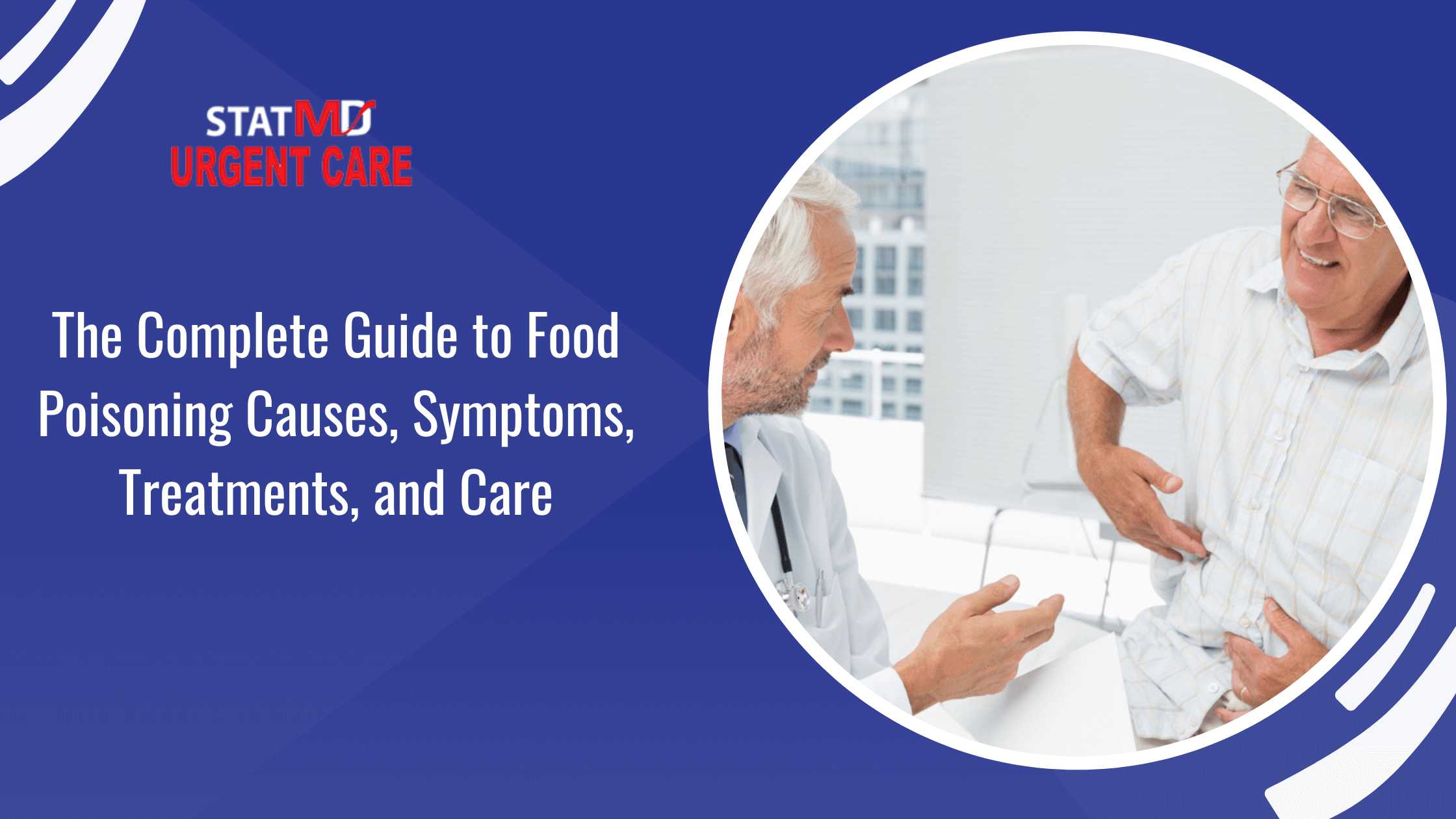
Flu Shots Now Available Don't Miss Out on Limited Supply!
For Young St: (661) 464-5000
For Panama Lane: (661) 464-5001

Are you constantly vomiting, chronically tired, suffering from a throbbing headache, or running a high fever? Then, you might have food poisoning.
Food poisoning, also known as foodborne disease, is caused by consuming contaminated food. According to the FDA, despite the high standards in the American food supply, over 48 million foodborne diseases are reported annually. Consequently, food poisoning has led to 128,000 hospitalizations and 3,000 deaths. Therefore, it’s important to learn about food poisoning, its symptoms, causes, and treatment, in order to prevent getting it if possible.
Identifying the source of an illness can be tricky, especially if symptoms do not appear immediately. The intensity of food poisoning symptoms can range from extremely minor to very serious, which can cause the symptoms you experience to vary.
The following are the common indicators that mean you should seek urgent care treatment for food poisoning:
Some fatal symptoms that seek urgent attention and immediate food poisoning treatment are:
Most of the time, the mild symptoms will subside within a couple of days, and the patient recovers completely.
The most frequent food poisoning sources are infectious agents, including germs, parasites, and fungi. Food can get contaminated easily during sourcing, processing, preserving, transporting, and/or preparing. The cause is frequently cross-contamination, which is the spread of dangerous germs from one medium to another.
Certain food products, including meat, poultry, and milk, are regularly contaminated. Additionally, disease-causing microorganisms are often present in water. When people process food while carrying a pathogen, infections can transmit from one person to another, especially when maintaining proper hygiene and sanitation is more difficult, enhancing the need for food poisoning treatment.
The intensity of your symptoms and the cause of the infection will determine how you should be treated for food poisoning. Most people recover from the sickness on their own in a few days. However, severe forms of food poisoning might linger longer, and seek urgent care for food poisoning.
Replacement of lost fluids: If you have persistent diarrhea, you need to replenish the fluids and electrolytes—minerals like salt, potassium, and potassium that keep the equilibrium of fluids in your body that you lose.
Antibiotics: If you have a specific type of bacterial food poisoning and your symptoms are severe, your doctor may recommend medications through antibiotics.
Proper Hydration: Maintain proper hydration by drinking enough water to flush out harmful toxins and prevent the spread of food poisoning.
Seek medical help if you encounter any of the physical signs listed below:
The best approach to avoid contracting a foodborne illness is to use safe food handling procedures. To avoid contamination, those who collect, handle, and prepare food must exercise caution at every process phase. Regular practices include:
Even though having food poisoning is quite unpleasant, the best part is that with the right medical care given at the right time, most patients make a full recovery within a few days. At StatMD Urgent Care, our professionals provide extensive, high-standard food poisoning treatment with proper doses and care. Contact us today if you need a diagnosis or urgent care treatment for food poisoning in Bakersfield, CA.